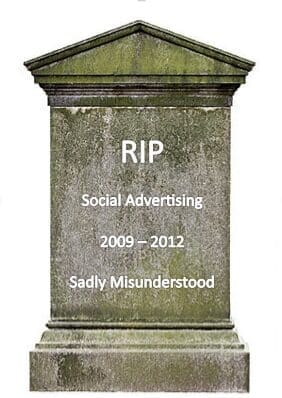

The announcement by Big 3 automaker General Motors that they will no longer be advertising on Facebook is probably leading a few companies to question their online media strategy.
Should they be questioning their media strategy? Absolutely, every day. There’s no such thing as rinse and repeat in digital media; placing the same ads as last year won’t work in a landscape that’s constantly changing. That’s why it’s so essential to track and measure the ROI of each advertising channel and to tweak and optimise regularly. That’s what GM is clearly doing with this announcement.
Analysts are making hay over this news because of the pending IPO. The truth is, Facebook will probably be just fine without GM’s annual $10 million media budget. While 85% of Facebook’s revenue in 2011 came from advertising, much of the value in this is due to Facebook’s ability to collect personal data and to offer advanced segmentation options. (In fact, if you’re curious, you can take an online quiz to find out just how much money you’re worth to Facebook, based on how much personal info you’ve shared.) These advanced segmentation options may be less relevant to a mass advertiser like GM, whose target market is just about “everyone”, as it is to a niche marketer looking to reach a very specific audience.
So is social media advertising
Subscribe to our monthly newsletter.
Stay Forward
As long as millions of people are spending huge amounts of time and sharing large amounts of data on Facebook, there will be marketing opportunities there. Of course, if people start shifting en masse to another property, the marketing dollars will move there, too. That’s why it’s critical to have a strategy guiding a media plan, to allow for this kind of flexibility.
We’re sure to hear more about Facebook’s valuation over the next few days, as people alternately scramble to invest or hurry to scoff at those who do. But the real value of Facebook for a given company is simple: Money in minus money out. Should your company follow GM’s lead? It depends on what that equation looks like for you.
Interested in finding out more? Contact DAC today!
Contributing Experts
Stay Forward
Subscribe to our monthly newsletter.


